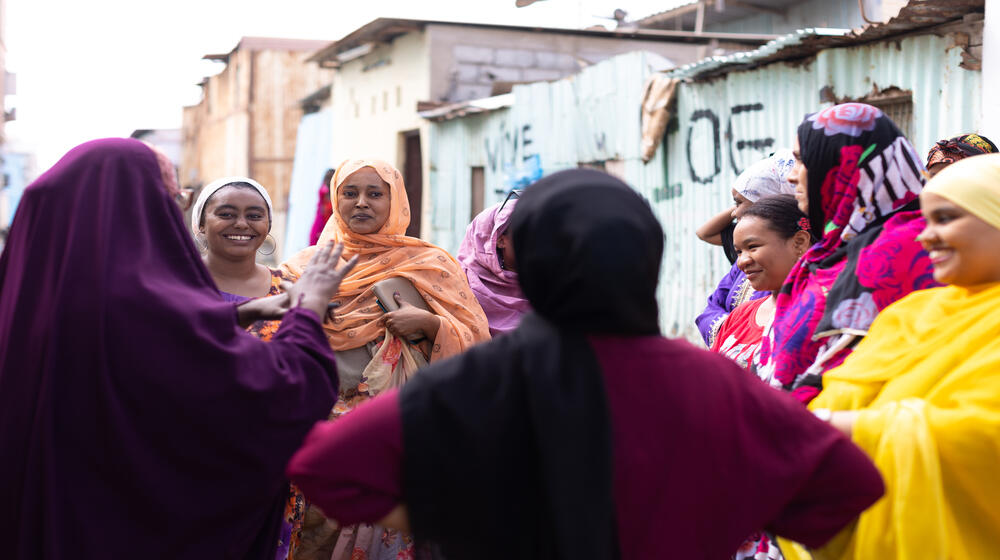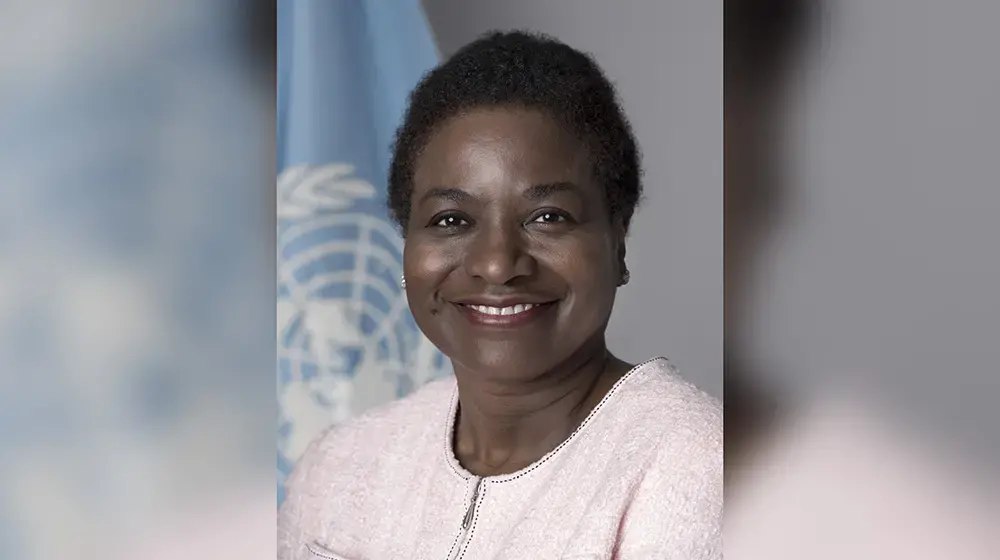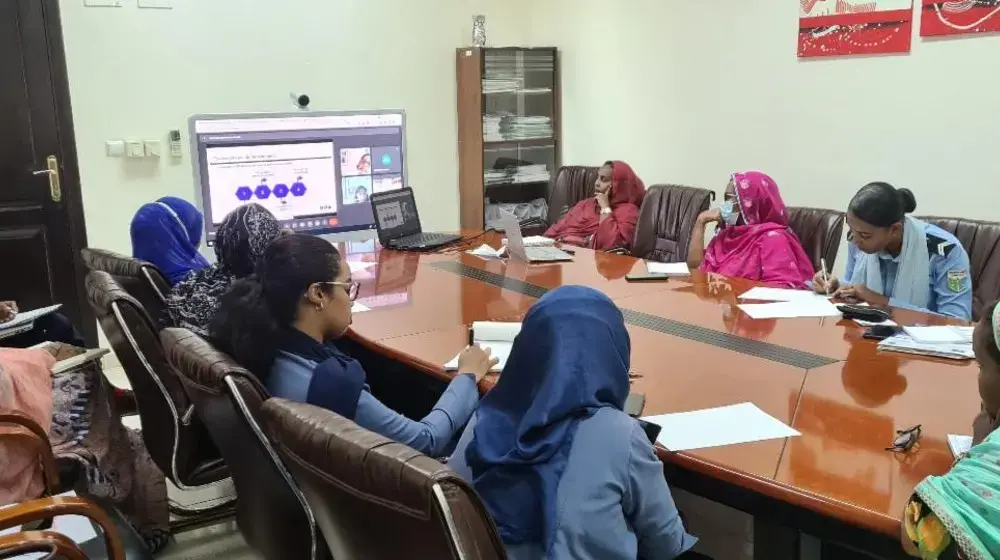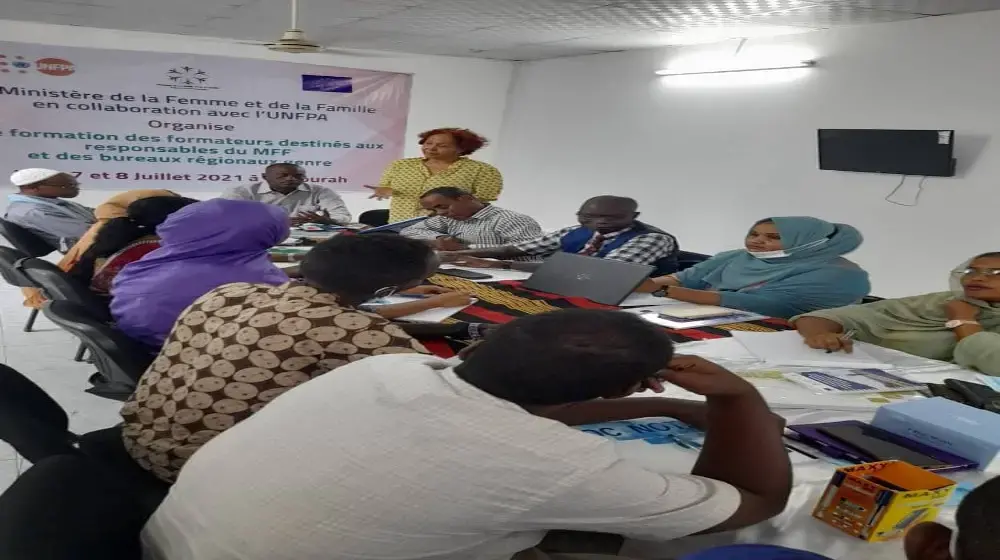Nafissa and Imane’s associations are part of UNFPA’s ‘Elle and Elles’ [she and hers] network that gives support, training and guidance to female leaders to advocate for women's health and rights in some of Djibouti’s most deprived areas.
“Joining the network opened up a new path for me,” says Imane. “My association was trained, and we all became peer educators. Today, I share my story with young girls who are looking for someone to listen to, just like I was. My story, once shrouded in silence, has become my symbol of hope and resilience, supported by the strength of my father's listening and love.”
The network includes eight associations, each with six UNFPA-trained peer educators, that engage in outreach on unwanted pregnancies, drug addiction, gender-based violence, sexually transmitted infections and female genital mutilation. Members are also trained in liaising with communities to prevent and refer cases of gender-based violence.
“The Elle and Elles network embodies the strength and determination of women and girls who are dedicated to their communities. By expanding and forging connections with other community networks established by UNFPA, it epitomizes the aspiration for a nationwide coalition, where women, supported by religious leaders and committed men, join forces for the empowerment of women and girls,” says Aicha Ibrahim Djama, Head of Office for UNFPA-Djibouti.
“Looking ahead, the network will be strengthened at the regional level through clusters of associations covering remote rural areas to boost its impact and influence,” she adds.
For Nafissa, support from UNFPA allowed her to set up Djibouti’s first and only shelter for survivors of gender-based violence. Members of her association also raise awareness of reproductive health and rights, and to encourage action to eradicate female genital mutilation.
“We don't want to be mutilated. It must stop,” Nafissa says. “Thanks to our outreach, many more mothers are aware of their daughters’ suffering and many more girls are being saved.”





